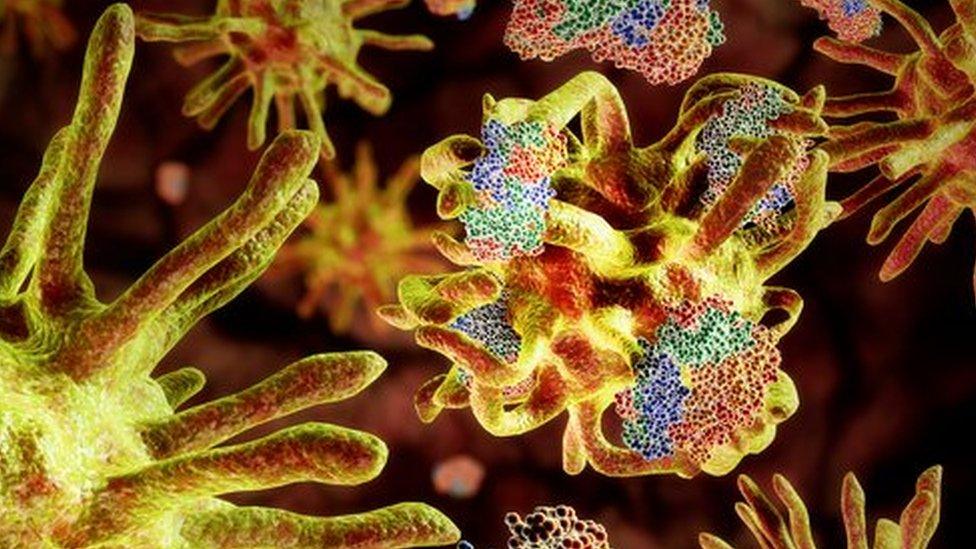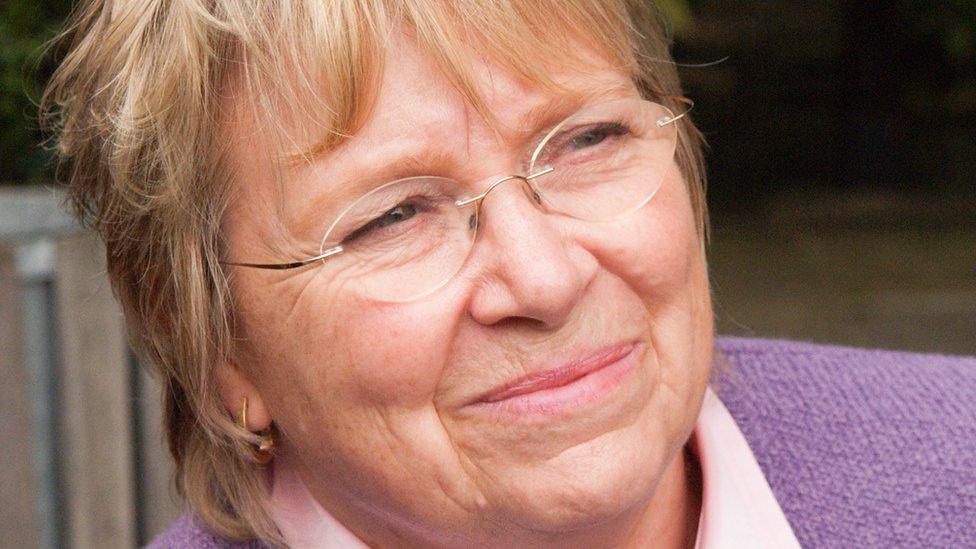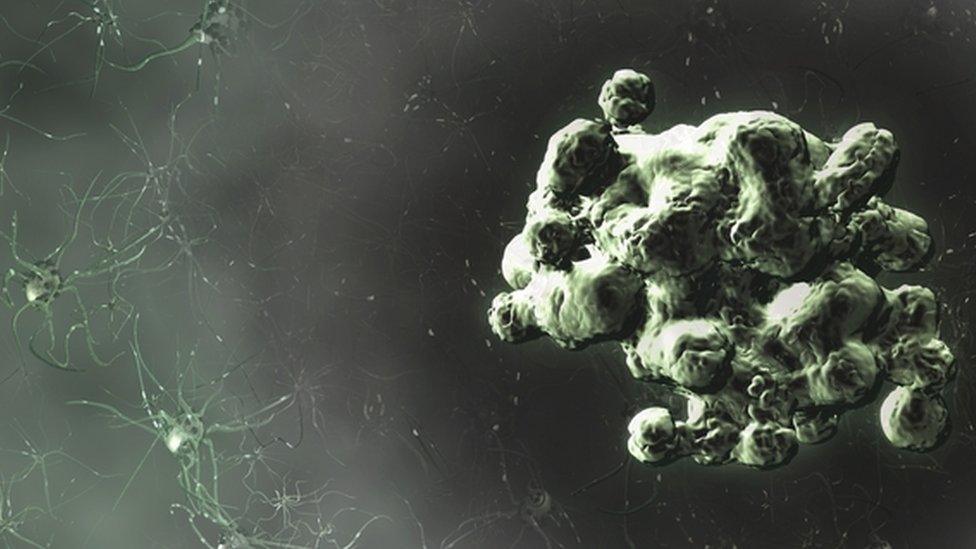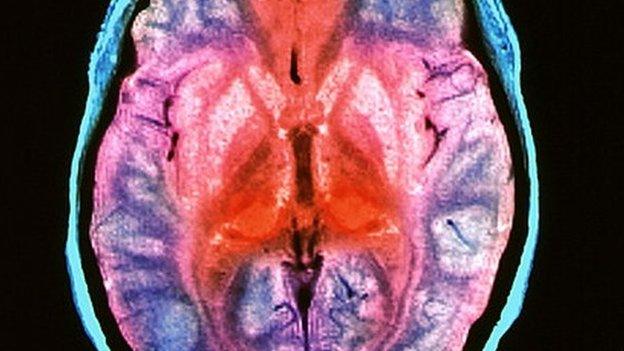Pioneering CJD treatment to be used on British patient
- Published

Doctors have been given permission to give a British man with CJD a pioneering treatment, in a world first.
There is currently no treatment for the rare but lethal brain disease, known as the human version of "mad cow disease".
Doctors in London were given permission for the trial use on a human for the first time by the Court of Protection.
Scientists say lab testing of the man-made antibody has been encouraging, but they admit they do not know how their patient will respond.
'Extreme caution'
The patient in this case, who has not been named, has sporadic CJD, the most common form of the disease in humans.
This is different from variant CJD, the version linked to eating beef infected by bovine spongiform encephalopathy, or BSE.
Sporadic CJD happens when healthy proteins in the human body - prions - become spontaneously misshapen and build up in the brain.
The man-made antibody treatment, called PRN100, aims to prevent abnormal prions from being able to attach themselves to healthy proteins, meaning that they cannot grow and cause devastation throughout the brain.
University College London Hospitals NHS Foundation Trust (UCLH) is set to use it in a patient for the first time after a judge from the Court of Protection confirmed on Monday that it was lawful and in the patient's best interests to receive it.
Prof John Collinge, director of the Medical Research Council Prion Unit at University College London, who led the development of the treatment, said: "As this is the first time this treatment has been used in humans we cannot predict what the outcome will be, but laboratory testing has shown the potential to treat prion infection.
"A key issue will be whether a sufficient quantity of the drug is able to cross the blood brain barrier to reach the brain tissue where it needs to work.
"We will proceed with extreme caution in very tightly-controlled conditions.
"A team of experts from a range of disciplines will make collective decisions in the best interests of the patient."


Annie Beatty died in 2010 after being diagnosed with sporadic CJD
'The diagnosis was devastating'
Colin Beatty's wife, Annie, died in 2010 after she was diagnosed with sporadic CJD.
Annie was 70 and the couple had been married for 40 years.
"The diagnosis was devastating. It was like a bomb had gone off in our family," said Colin.
Colin, 75, from Dorset, said the illness made Annie vacant in the beginning.
Then her speech became muddled and she would wander off without warning, which he said was "terrifying".
"It was heartbreaking to watch Annie deteriorate.
"I nursed her at home initially but she became very difficult to care for, so we had to admit her to a nursing home."
Colin said if the PRN100 antibody had been available at the time, he would have wanted Annie to have had the opportunity to be treated with it.
"It's true that the treatment carries potential risks, and the benefits are not yet certain, but without it, there is no hope. The only certainty with CJD is death."

'Important step forward'
UCLH's National Prion Clinic sees about 120 patients with sporadic CJD each year.
The patient, who together with his family supported the UCLH's court application, will initially receive the treatment via a drip into a vein in the arm.
The hospital trust said it was preparing for a range of possible outcomes, from the treatment having no measurable effect to slowing or halting the progression of the disease.
It is not expected to reverse any brain damage that has already occurred.
UCLH said it would see how the first patient responded before considering using it in a second person.
UCLH's chief executive, Prof Marcel Levi, said: "At present, caring for patients with CJD involves trying to use medicines to alleviate symptoms only, but sadly the disease always results in the rapid death of the patient.
"The court's confirmation is an important step forward in tackling this devastating illness."
- Published4 October 2016

- Published10 June 2015
